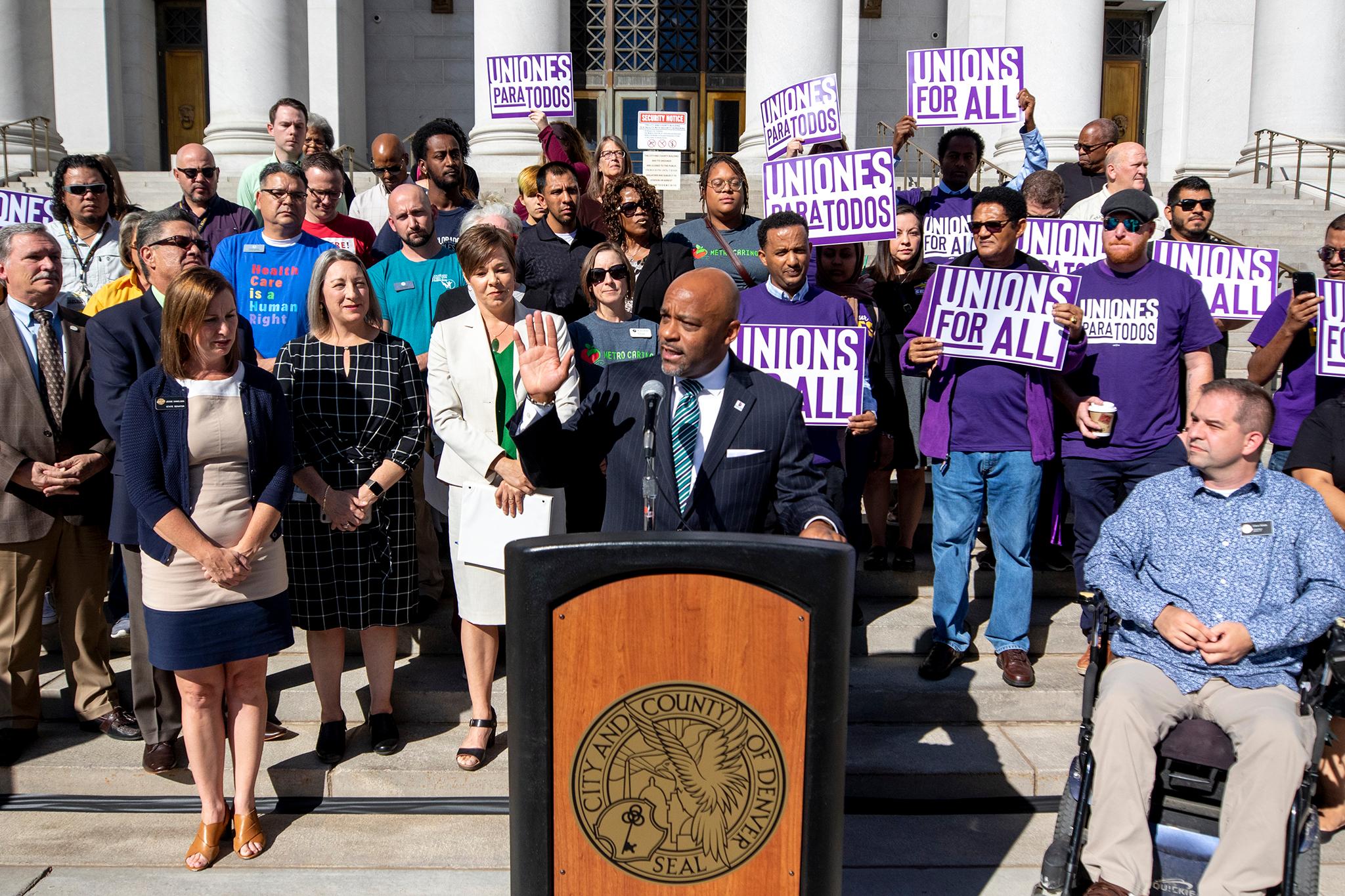The City Council voted unanimously to raise Denver's minimum wage Monday, but the support among the city's business owners and workers is not nearly as universal.
The new ordinance will raise the minimum wage from $11.10 to $12.85 on Jan. 1, then to $14.77 in 2021 and to $15.87 in 2022. After that the increase will be pegged to the consumer price index, which is calculated every year based on the increasing costs of essentials like food and healthcare (but not housing).
Many supported the raise, citing Denver's skyrocketing rents. At one public meeting before the vote, workers and nonprofits came out to voice support for an even higher wage hike.
Now that it's real, those workers are looking forward to better pay.
"There are some places where you're pretty much busting your butt and you're not getting pay that's worth the work," said Melissa Pacheco, a worker at a 7-Eleven in North Capitol Hill. "I think it would be great for those of us who want to get further in life than where we're at."
There is precedent for Denver's wage hike. As of October, there were 44 local governments that had a minimum wage higher than their state's minimum wage. A handful of cities and states have now surpassed a $15 minimum wage. Those places have been studied to death by economists to try to determine what wage increases do to the broader economy.
According to Michael Reich, a co-chair and professor at Berkeley's Center on Wage and Employment Dynamics, minimum wage increases brought benefits to the cities that implemented them.
"When minimum wage goes up, child poverty goes down and adult poverty goes down," he said. "We also have studies that show that credit ratings improve quite a bit."
Other effects from a minimum wage increase have been hard to tease out in academic studies. The idea that raising the minimum wage increases the costs of goods and services or forces businesses to close have been difficult to study because labor costs are only one piece of the puzzle. Prices may rise when the minimum wage is increased, but that may be because other costs, like rents, are also increasing and having the same effect.
Despite whatever the research says about the effect of minimum wage increases, some Denver businesses, particularly restaurants, say that they simply cannot swallow the increase.
"There are restaurateurs out there where the increased cost that this will bring for them is more than their profit," said Nick Hoover, a spokesman for the Colorado Restaurant Association. "There are only a few things that a restaurant can do and most restaurants have already reached the limit of what they can charge for their product."
According to Hoover, this increase would also widen the pay gap between servers and untipped kitchen staff. Colorado law allows for a $3 credit in the wage for tipped workers, meaning that by 2022 servers will make $12.87 an hour in addition to tips, which add about $20-$40 an hour to a server's take-home pay. The wage hike could increase pay for servers that already make more than minimum wage, while kitchen staff, many of whom already make around $15 an hour, may not see a raise.
While restaurants have remained at the center of the conversation, other small business owners have also said they'll be affected. The Colorado chapter of the National Federation of Independent Business and the Colorado Chamber of Commerce, opposed the wage hike. Some businesses at the public meetings said they would have to close or cut staff.
Still, others embraced the change. The dispensary chain Terrapin Care Station preemptively raised their wages to $15 earlier this month.
"The cost of living is going up, and it's harder and harder to make it work it Denver," said Peter Marcus, the communications director for the company. "It comes at a cost for the company, but we saw it as something that could be absorbed."
Even with more money in their pockets, many workers don't see this as a real solution to the problems of rising costs in Denver. Kaylie Lynn, a barber, grew up in Denver and just recently moved on from minimum wage work. Out of high school, she was able to support herself on a minimum wage job at a cheesecake restaurant, but said that wouldn't be possible now.
"Denver used to be an affordable place to live," she said. "I think that lowering how much people have to pay out to live here would make it a lot easier even if they're only making around $12 or $13 an hour."













